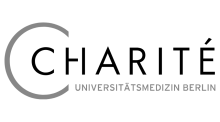A public Science|Business Healthy Measures webcast, in partnership with Charité Universitätsmedizin, Berlin (14:30 – 16:15 CEST)
Until COVID-19 pushed most of Europe into its extended lockdown, the Science|Business Healthy Measures initiative was planning to convene another of its expert, invitation-only roundtables at Charité – Universitätsmedezin, Berlin’s world-renowed university hospital, to discuss skills, education and training for outcomes-based innovations in healthcare.
The sweeping impact of the crisis, however, has prompted a rethink and a new approach, as we move this debate into an international webcast open to the public. First, it is clear that the pandemic has placed health systems in Europe and beyond under an unprecedented level of strain, in terms of both the physical and human resources being used to fight its spread. Despite many policy papers, foresight exercises and other studies that followed other pandemics (SARS, MERS, etc), with the view of strengthening the defences against similar scenarios, COVID still managed to take most decision-makers by surprise.
In the specific context of health outcomes, therefore, it is clear that any serious discussion needs to start with the overarching question of preparedness. Now that Europe has a collective, shared and tragic experience of a pandemic in real time, what can be done to make our health systems more resilient to shocks of this nature? Which critical gaps and fault lines must be addressed, and what can be learned from countries which have successfully slowed or halted COVID’s spread? What might the future hold for EU-level coordination and competences in health – a domain historically reserved for, and guarded by member states?
The second main theme of our April 28 webcast is a distinctly human one, in line with the original theme foreseen for the physical meeting in Berlin. The incredible dedication and sacrifices made by front line health professionals have been rightly heralded – in part because so few personnel had any prior experience of responding to a pandemic. However, when the most urgent pressures have receded, we should also ask what the COVID experience will mean for future health skills, education and training programmes. Have traditional approaches served us well in coping with the crisis? Are there new areas of competence which should be prioritised – such as the rapid deployment of digital technologies? How will health professionals deal with the long-term sociopsychological impacts of COVID? These, and various others, will be at the heart of our debates on April 28 – so come and join us!
Interact with us on Twitter: @Scibus / @ScibusHealth (#SBhealth and #COVID19)
Rewatch this webcast on our Youtube channel:







14:30 - Welcome and introduction
14:35 - Future proofing: Redefining ‘preparedness’ for the health systems of tomorrow
15:20 - Human resources: Rethinking health skills, training, education and know-how in light of the crisis
16:05 - Conclusions
16:10 - End of proceedings
16:15 - Online meeting room closes
For more information on this event, please contact Lysiane Pons ([email protected])
NB: For any information after the start of the event (April 28, 14:30), please contact Andrea Stavrou ([email protected])



 A unique international forum for public research organisations and companies to connect their external engagement with strategic interests around their R&D system.
A unique international forum for public research organisations and companies to connect their external engagement with strategic interests around their R&D system.